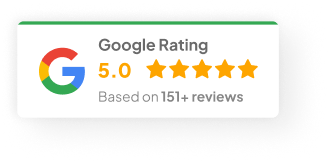03 Feb 25
Which Of These Criteria Would Be Important To Consider When Choosing A Programming Language?
Starting a new web project? Yeah—it always kicks off with that one big question: what programming language should you use?
I’ve seen this decision trip up plenty of teams over the last 20 years. Truth is, there’s no one-size-fits-all. Every language has its own vibe. Its own quirks. Some are fast. Some are flexible. Some are downright painful if you pick them for the wrong job.
So, let’s break this down properly. Here’s how I usually explain it to clients when we’re kicking off a build.
What’s A Programming Language? (In Plain English)
A programming language is basically a set of rules that tells your computer (or server, or browser) what to do. Think of it like a recipe—but for your website.
We use these languages to:
-
Build the structure of your website.
-
Handle databases behind the scenes.
-
Add all those interactive bits your users play with.
Some languages focus on the stuff your users see (that’s front-end), others run things behind the curtain (back-end). And these days, a lot of languages happily do both.
The Main Players (aka The Languages You’ll Hear About The Most)
Here’s the shortlist I usually run through with clients:
1) JavaScript
Honestly, you can’t build much on the web today without JavaScript. It’s the muscle behind most interactive stuff: think animations, live chat, form checks, dynamic loading. With Node.js, it’s crept into the back-end too.
When we built a real-time auction platform for a client back in 2022, Node.js with JavaScript was a no-brainer. Fast. Scalable. Flexible.
2) Python
Super clean and easy to read. Python’s brilliant for back-end development, especially with Django or Flask frameworks. Plus, if you ever want to bolt on machine learning or data analytics down the track, Python is king.
3) PHP
People love to hate PHP—but honestly, it still powers nearly half the web. WordPress? That’s PHP. Drupal? PHP again. If you’re running a data-heavy CMS site, PHP paired with MySQL is still solid.
4) Ruby
Ruby (with Ruby on Rails) is kind of the fast-track language. Developers love it because it cuts a lot of setup and configuration. Startups often go this route because you can get something live quickly, without blowing the budget early on.
5) Java
Big, heavy, enterprise-grade stuff? Java’s your guy. Banks, insurance platforms, big government portals—they often run on Java because of its reliability and strong security.
How To Actually Choose (The Stuff That Really Matters)
Forget popularity contests. What you want is the right fit for your project. I always get clients to focus on these:
1) What Are You Building?
Simple brochure website? PHP or WordPress works.
A real-time booking app? JavaScript + Node.js.
Data-heavy reporting tool? Python with Django.
Massive enterprise system? Java all day.
2) How Fast Do You Need It?
-
Ruby on Rails and Django are fast for MVPs
-
Java takes longer but builds a tank
-
JavaScript frameworks like React help you pump out slick UIs fast
3) Performance & Scale
If you’re expecting huge traffic spikes (think Black Friday sales), you’ll want languages and frameworks that handle concurrency well:
-
Java (with Spring Boot)
-
Node.js (for async processing)
4) Community & Ecosystem
This gets overlooked a lot. A strong community means:
-
More plugins
-
More tutorials
-
Faster troubleshooting
-
Less chance your developer throws their laptop across the room
For example:
-
JavaScript: React, Vue, Angular
-
Python: Django, Flask
-
PHP: WordPress, Laravel
5) Cross-Platform Options
Want one codebase for both web and mobile?
-
JavaScript + React Native is your friend
-
Flutter (Dart) is starting to catch fire here too
6) Long-Term Maintenance & Security
You want a language that:
-
Gets regular updates
-
Has security patches
-
Won’t leave you stranded
Java’s rock solid here. Python too. PHP has improved massively thanks to its huge install base.
Look—There’s No Perfect Answer
I’ve seen great projects built in all these languages. And I’ve seen trainwrecks too—because the language didn’t fit the project.
-
Know your project
-
Know your team’s skillset
-
Know your long-term goals
Get those aligned, and you’ll be 90% of the way there.
So—what’s your gut telling you right now? Do you know which way you’re leaning?


